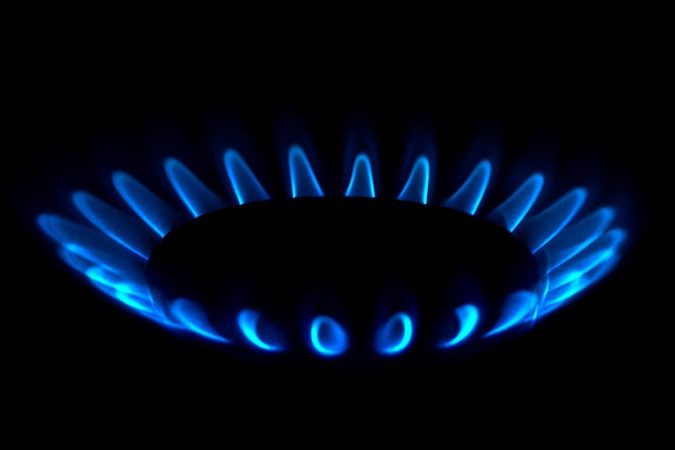Renewable energy donor Clean Virginia Fund was the biggest winner in Tuesday’s primaries, going head to head against Dominion Energy Virginia in several nomination contests and often winning. Senior incumbent Democrats with strong Green New Deal voting records went down to defeat, because good wasn’t good enough.
Come Election Day in November, the contrast between Democrats and Republicans on Virginia’s energy future will be as stark as possible. Quite simply, the use of natural gas within the Commonwealth is on the ballot. Dominion’s recent announcement that it plans a new gas generation facility in Chesterfield County to bolster electricity reliability only poured fuel on the fire (pardon the pun.)
The Charlottesville based Clean Virginia, which now also engages in lobbying and intervenes in State Corporation Commission regulatory matters, is funded by Michael Bills. His wife Sonjia Smith has a similar pattern for donations, but does not give through the political action committee. So far in this election cycle, with the fall elections still to come, Clean Virginia Fund and Smith combined have donated $7.3 million, more than 99% of it to Democrats.
Dominion is not far behind at $6.9 million donated so far in this cycle, but only $3.2 million of it has been to Democrats. Many of them lost Tuesday to opponents backed by Clean Virginia. They included Fairfax Senator George Barker ($230,000) and Richmond’s Joe Morrissey ($140,000.) A late donation to a House of Delegates challenger in Virginia Beach, Susan Hippen ($110,000), also apparently was in vain.
One major Democrat incumbent who lost Tuesday, Senator Chap Peterson of Fairfax, received substantial support from Clean Virginia and no funding from Dominion this cycle. But Smith covered that bet with a $30,000 donation of her own to Petersen’s opponent, Saddam Salim, and any question who had the greener credentials was settled by $1,000 to Salim from Jane Fonda. Smith was Salim’s biggest donor.
In a Prince William County senate district with no incumbent and little chance for a Republican, Clean Virginia and Smith donated $783,000 to winner Jennifer Carroll Foy, who had served in the House. Dominion’s $225,000 made it the largest donor to her failed opponent, Hala Ayala, also a former House member.
The ongoing fight between Dominion and Clean Virginia is not good news for energy consumers. Dominion and Clean Virginia are not always on opposite sides. When they do agree, consumers usually lose.
Dominion remains deeply committed to (and committed to making its ratepayers pay for) massive offshore wind installations and thousands more Virginia acres covered with solar panels. It was a shock to the wind and solar industrial complex when Dominion changed direction in its latest integrated resource plan and called for decades of continued reliance on natural gas to back up those intermittent energy sources. But the big bucks are still going to wind and solar.
The utility and the activist group are further apart on regulatory matters, and Clean Virginia was a key player in forcing Dominion into a compromise during the 2023 session that included several pro-consumer elements. But the biggest regulatory problem in Virginia remains the General Assembly’s demands that Virginia charge toward an energy future with absolutely no use of any fossil fuels.
Neither Clean Virginia nor Dominion would favor those decisions now being made somewhere else, outside of the General Assembly’s tight grip. That is why both are spending millions, with millions more to come, to buy influence over the men and women who will vote in the next session in January 2024.
What issues might that General Assembly address?
Should the Green Left control at least one chamber, forget about the past efforts to:
- Decouple Virginia from the California Air Resources Board’s regulations on clean cars, which will force dealers to sell more and more electric vehicles until all gasoline engines are prohibited by 2035.
- Prevent Virginia’s local governments from adopting their own local prohibitions on the use of natural gas in homes and businesses. Charlottesville and Richmond run local gas utilities, both are considering closing them, and if they are shut down gas use would also be prevented in surrounding jurisdictions tied into the same systems.
- Further amend the 2020 Virginia Clean Economy Act or repeal the statutory mandates to eliminate fossil fuel use in other areas of the economy, not just the production of electricity. Under current law agriculture and construction are in the crosshairs, too.
Should Clean Virginia help favored candidates take full control in both chambers, what is likely to happen?
- That Dominion plan to keep and expand its natural gas fleet would be in jeopardy. For the remainder of his term Governor Glenn Youngkin could probably protect it, but the next governor might not.
- Instead, expect a more watertight legislative mandate and aggressive schedule to end the use of coal, natural gas and perhaps biomass to make electricity.
- Localities seeking to expand their own powers to ban disfavored energy sources would have the Assembly as an ally, not a roadblock.
- If still vulnerable to state meddling, both the Mountain Valley Pipeline in Western Virginia and the pending expansion of the natural gas pipelines feeding more gas into Hampton Roads would face greater pressure.
- The California Air Board has gone far, far beyond trying to eliminate internal combustion engines in cars and light trucks. If dictated by legislation, Virginia could also copy California’s efforts to force all-electric power tools, commercial trucks and even railroad locomotives.
- If Youngkin overcomes the court challenge to removing Virginia from the Regional Greenhouse Gas Initiative, and ending the carbon tax it imposes, opponents of reliable and affordable energy will pass new bills to reinstate the tax as soon as legally possible. Again, Youngkin might be able to hold that off, but it will confront the next governor.
The Dominion versus Clean Virginia contest over the loyalty of Democrats is a fascinating cage match. Neither is fighting for the average Virginia consumer who wants inexpensive, reliable energy from a broad variety of sources and totally independent regulation.

Steve Haner is Senior Fellow with the Thomas Jefferson Institute for Public Policy. He may be reached at steve@thomasjeffersoninst.org.






